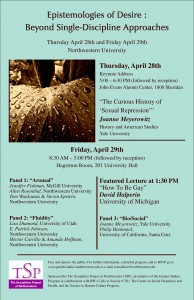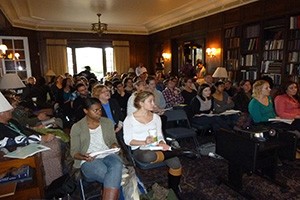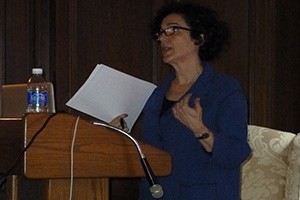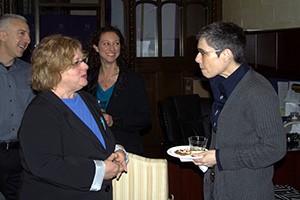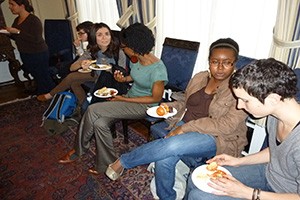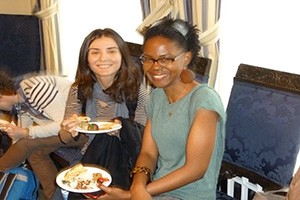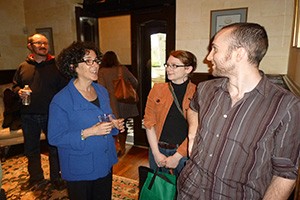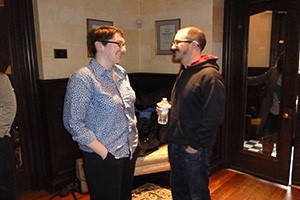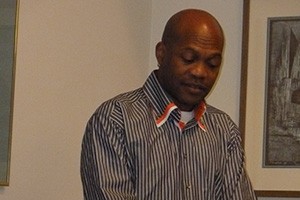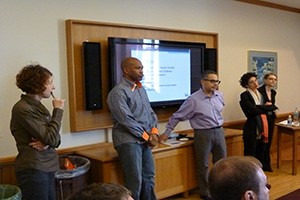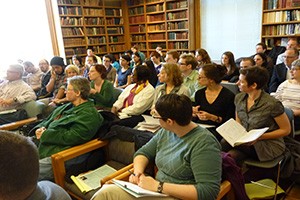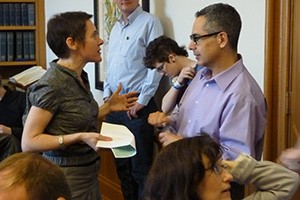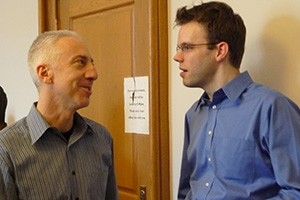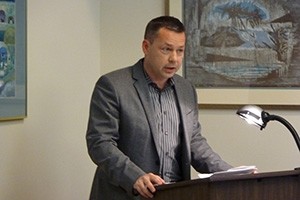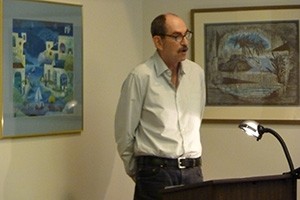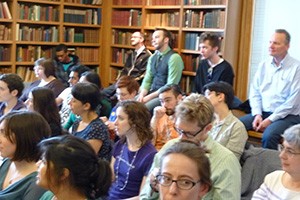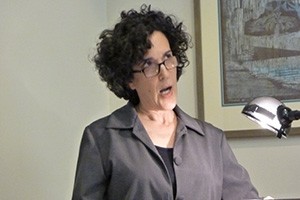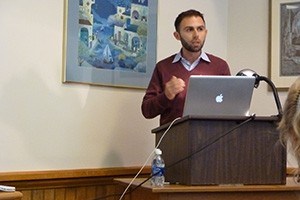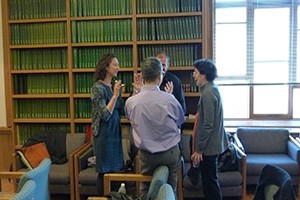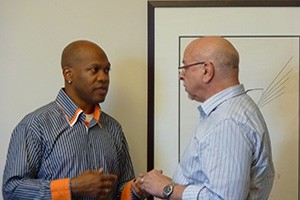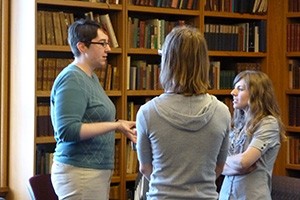“Epistemologies of Desire: Beyond Single-Discipline Approaches”
April 28-29, 2011
By organizing this workshop, SPAN’s goal was to foster cross-disciplinary dialogue among faculty, researchers, and students who teach courses on sexuality and conduct sexuality-related research in programs across Northwestern. In particular, we sought to open up a conversation about the various ways in which multiple disciplines have approached such topics as sexual repression, sexual arousal, sexual fluidity, sexual orientation, and sexual identities.
To achieve this goal, we invited a diverse group of speakers, including several top scholars from around the country and from our own university. The “Epistemologies of Desire” speakers represented the fields of American Studies, English, Gender Studies, History, Performance Studies, Psychology, Queer Studies, Science Studies, and Sociology, and the audience included participation by faculty, undergraduate and graduate students, and research staff from at least sixteen departments and programs at Northwestern, as well as from other local universities, including DePaul and the University of Chicago.
The event was kicked off by a keynote address delivered by historian Joanne Meyerowitz, Professor of History and American Studies at Yale University, and Co-Director of the Yale Research Initiative on the History of Sexualities. Prof. Meyerowitz also served as SPAN’s Visiting Professor for 2010-11.
In her talk, “The Curious History of Sexual Repression” (which brought a standing-room-only crowd of 150 to the John Evans Alumni Center), Meyerowitz examined the troubling use of the Freudian concept of sexual repression—alongside its presumed opposite, the sense of sexual debauchery—as a tool of stigmatization of populations and nations. Drawing on a number of interesting historical examples—including contemporary ones, such as the popular discourse surrounding the perception that the perpetrators of the terrorist attacks of 9/11 were sexually repressed—Meyerowitz argued that sexual repression has served the purpose of “othering” socially-stigmatized groups. She noted, furthermore, how some of the same groups who at one time were thought of as being “sexually libertine”—including people of Middle Eastern descent, but also African Americans, Latinos, and other racial/ethnic groups—at other moments have been targeted for their supposed sexual repression.
Approximately 75 people attended the panels the following day, including the special lecture by Professor David Halperin (University of Michigan). The panels discussed selected issues that remain contested within the field of sexuality studies, addressing such topics as arousal (What does the measurement of sexual arousal reveal about sexual orientation?) and fluidity (Can we necessarily assume that the acquisition of a stable sexual identity is the endpoint of sexual development for all individuals?). A third panel analyzed how interdisciplinary collaboration between the biological and the social sciences can be promoted within sexuality research. These panels included presentations by sociologist Jennifer Fishman (McGill University), psychologist Lisa Diamond (University of Utah), historian Joanne Meyerowitz (Yale University), and psychologist Philip Hammack (UC Santa Cruz), plus presentations by Northwestern researchers, including psychology doctoral student Allen Rosenthal, Postdoctoral Fellow Tom Waidzunas (Sociology and the Science in Human Culture program), Prof. Steven Epstein (Sociology and the Humanities, and director of the Science in Human Culture program), Prof. E. Patrick Johnson (Performance Studies), Prof. Héctor Carrillo (Sociology and Gender Studies), and Amanda Hoffman, MA (who works with Prof. Carrillo).
Finally, the workshop included a featured lecture by classicist David Halperin (W. H. Auden Distinguished University Professor of the History and Theory of Sexuality at the University of Michigan), entitled “How to be Gay.” In his work, Halperin has addressed the controversial and contested topic of gay culture. This talk was followed by a response by Northwestern Prof. Nick Davis (English and Gender Studies).
| Special guest speakers | Northwestern University speakers |
|
Lisa Diamond, University of Utah |
Héctor Carrillo (Sociology and Gender Studies) |
See the biographies of the speakers.
From the organizers’ welcome by Steve Epstein and Héctor Carrillo:
“We begin with the assumption that our ways of comprehending sexuality, both in the academy and outside of it, are inevitably and rightly diverse, though also sometimes unduly polarized. There are many epistemologies of desire, and we do not strive today to emerge with a unified epistemology of desire. We doubt that’s the right goal, even if it were somehow possible to achieve.
“Our goal today is not consensus, in part because we believe in the potential productivity of letting disparate perspectives bump up against each other so that we can learn from the resulting tensions and incongruities. But we do believe there’s virtue in dialogue, at least if that dialogue is pursued in good faith.
“We think that such dialogue can be productive especially when participants are willing to think outside the limits of disciplinary perspectives (which are often useful but sometimes constraining), and when they’re prepared to abandon straw arguments and tired binary oppositions, such as the biological versus the social, the natural versus the cultural, and the structural or institutional versus the symbolic or representational.
“As we said, this effort is a collective experiment. We have some hunches and some hopes about what might emerge, but the fate of today’s sessions is really in all of your hands.”
Read the conference summary by Anna Terwiel (Ph.D. Candidate, Political Science).
Read the summary of Joanne Meyerowitz’s keynote address by Clare Forstie (Ph.D. Candidate, Sociology).
Read the summary of David Halperin’s lecture by Jeffrey Kosbie (Ph.D. Candidate, Sociology & Law).
event photos

